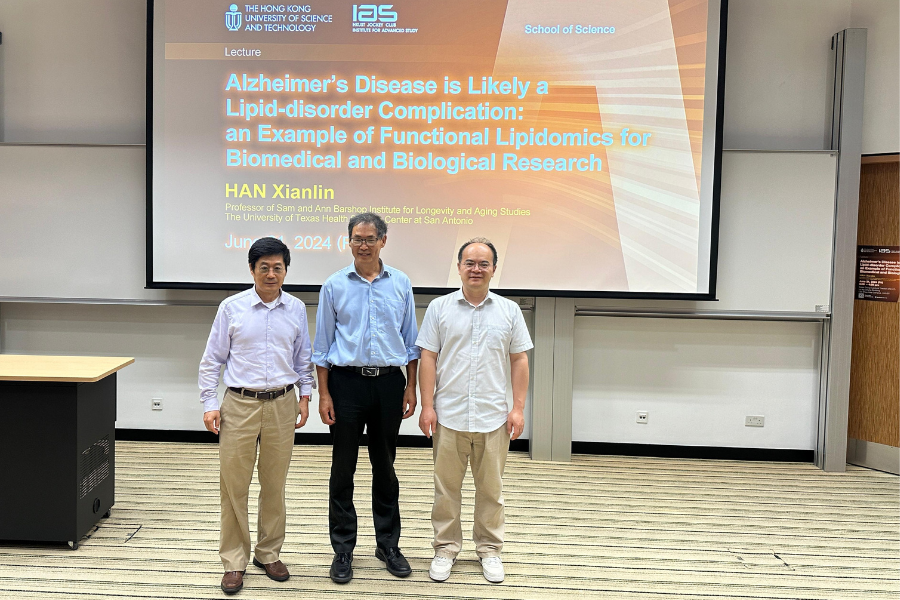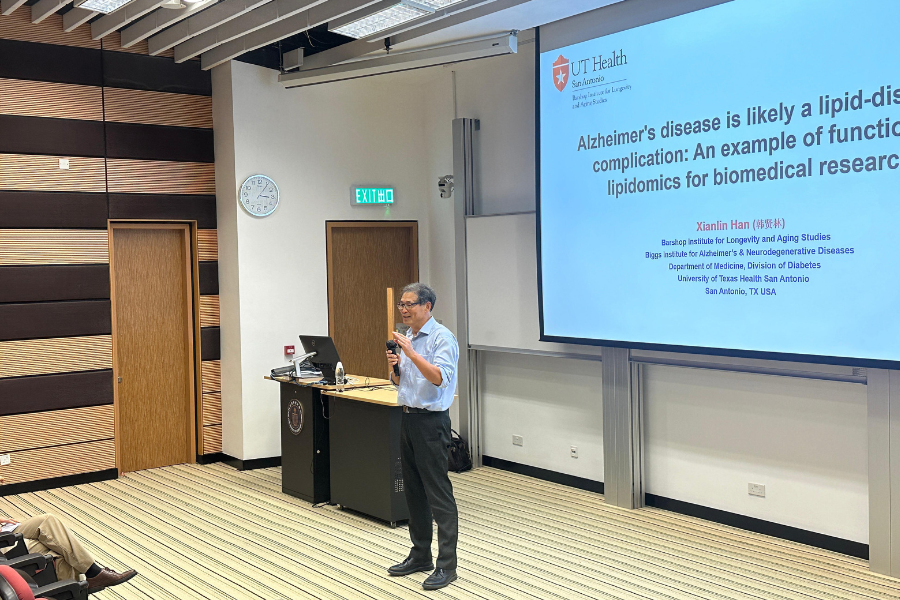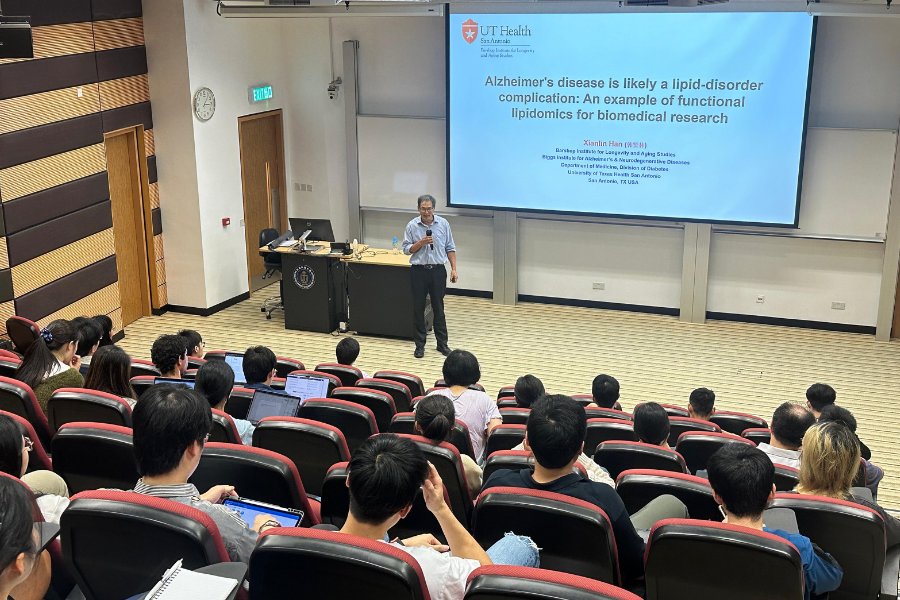Alzheimer’s Disease is Likely a Lipid-disorder Complication: an Example of Functional Lipidomics for Biomedical and Biological Research
Abstract
Functional lipidomics is a frontier in lipidomics research, which identifies changes of cellular lipidomes in disease by lipidomics, uncovers the molecular mechanism(s) leading to the changed lipidomes under the condition, and investigates the sequela of these changes in the context of the disease. Sulfatide, a class of sphingolipids, is a major lipid component in the nervous system, predominantly present in the extracellular leaflet of myelin sheath and specifically synthesized by cerebroside sulfotransferase (CST) in oligodendrocytes in the CNS. The speaker’s research team and many other laboratories have previously revealed that brain sulfatide content is specifically and dramatically reduced at the earliest clinically recognizable stages of Alzheimer’s disease (AD) and in all AD mouse models examined (e.g., PMID: 12358786; PMID: 12501252; PMID: 18762354). Their recent studies using an adult-onset sulfatide-deficit mouse model have uncovered that CNS sulfatide reduction is sufficient to activate disease-associated microglia and astrocytes, leading to chronic AD-like neuroinflammation and cognitive impairment (PMID: 34526055). The speaker and his research team also demonstrated that adult-onset sulfatide deficiency led to many other AD-like pathologies, including brain ventricular enlargement, disrupted urinary bladder control, tau hyperphosphorylation and aggregation, Ab metabolism disruption, etc. (e.g., PMID: 36613677; PMID: 37445661; PMID: 37239102; PMID: 37478300; doi.org/10.1002/glia.24423). In the current presentation, the sulfatide deficiency-induced AD-like phenotypes will be outlined and, selectively, sulfatide deficiency-induced bladder enlargement will be discussed in some details. Finally, the causal factors leading to sulfatide reduction in AD pathogenesis will be summarized. They believe CNS sulfatide deficiency plays a crucial role in AD pathogenesis.
Sponsored by: NIH (RF1 AG061872, RF1 AG061729, U54 NS110435, U19 AG069701, P30 AG066546, P30 AG013319, and P30 AG044271) and Cure Alz Fund.
About the Speaker
Prof. HAN Xianlin began his studies at Zhejiang University, where he earned his BS in Chemistry in 1982 and followed that with a MS in Chemical Thermodynamics in 1985. He then completed his MA in Physical Chemistry in 1987 and earned his PhD in Biophysical and Bioanalytical Chemistry in 1990 at Washington University. After receiving his PhD, Prof. Han joined the faculty of Washington University School of Medicine in St. Louis, Missouri. In 2014, he began serving in various academic roles at different institutions, including University of Central Florida, University of Florida, Sanford Burnham Prebys Medical Discovery Institute, and Zhejiang Chinese Medical University. In 2018, he transitioned to the University of Texas Health Science Center at San Antonio, where he currently holds the position of Professor.
Prof. Han is an internationally-renowned investigator in the fields of lipidomics, lipid metabolism, and lipid biochemistry. He has developed expertise in broad areas of research, such as neuroscience, diabetes, and metabolic biochemistry. The mass spectrometric techniques for lipidomics developed by his group, collectively termed “multi-dimensional mass spectrometry-based shotgun lipidomics” with unparalleled high sensitivity and comprehensive coverage, have been widely used to identify altered lipid metabolism, trafficking, and homeostasis, and biomarkers under patho(physio)logical conditions. The current interests of his laboratory research focus on Alzheimer’s disease, diabetic neuropathy, and mitochondrial dysfunction in diabetic hearts. Prof. Han also serves as the Associate Editor of Journal of Lipid Research.
For Attendees' Attention
Seating is on a first come, first served basis.






